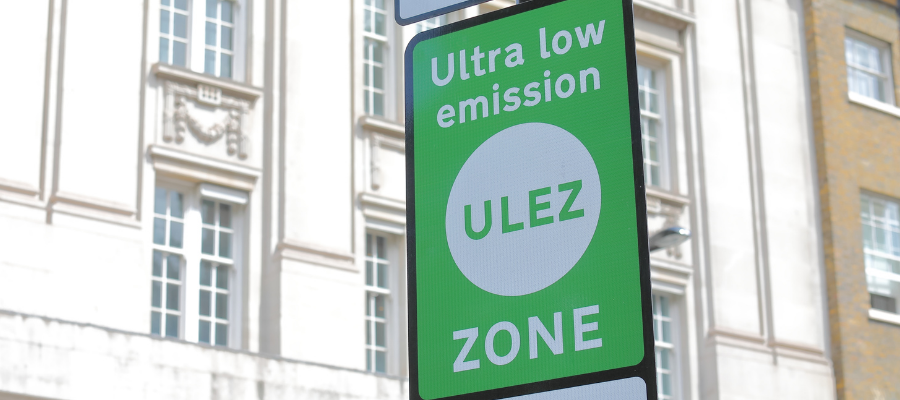🕒 Article read time: 2 minutes
Clearing the air – more Clean Air Zones due to be implemented across Britain

The introduction of Clean Air Zones (CAZs) and Low Emission Zones (LEZs) in cities and towns across the UK is now well underway.
The first two CAZs – in Bath and Birmingham – have already been implemented and are now in operation, while many more cities are planning to implement their zones in the coming months and years.
EURO VI TRUCKS MAKING GREAT STRIDES
The introduction of CAZs has the effect of speeding up the fleet replacement cycle of operators that make frequent deliveries to the city centres where the zones are being implemented. Euro VI HGVs already made up more than half of the UK fleet by the end of 2019, and it is predicted that by the end of this year, Euro VI vehicles will account for more than two out of three HGVs (70%), and that number is predicted to rise to 78% by the end of 2022.
If these predictions, which use historical trends for both the total number of licensed vehicles and Euro VI vehicles, are proved correct, the environmental improvements driven by Clean Air Zones will begin to slow as the fleet moves to lower-emission vehicles. This would suggest that local authorities may need to consider additional, and potentially more punitive policies to continue driving emissions reductions.
For that reason, Logistics UK is calling for a raft of mitigation measures, such as tackling congestion by reviewing road layouts and traffic signals, improved traffic management, retiming deliveries outside of peak hours by relaxing delivery curfews, and supporting businesses in their switch from fossil-fuelled vehicles through a comprehensive and equitable charging and refuelling network.
CAPTURING A CHANGING PICTURE
The implementation plans for CAZs in the UK are a fast-changing picture. While some zones face delays, or long consultation period, others are nearing a decision point.
To capture this changing landscape, each month Logistics UK updates its members-only CAZ briefing document, which covers both its position on urban air quality restrictions and up-to-date information on all the zones in development.
Bristol’s CAZ has been delayed from October 2021 to summer 2022 to allow time for more financial support to help citizens and businesses upgrade their vehicles. A loans and grants scheme will be launched in autumn 2021.
In Scotland, Dundee City Council has now identified a final preferred Low Emission Zone (LEZ) option and Aberdeen City Council and the City of Edinburgh Council are also consulting on their LEZ plans. Following the closure of its questionnaire on 22 August, Aberdeen plans to submit its final plans to the Scottish Government for approval late this year or early in 2022. Edinburgh’s LEZ consultation is open for a further month until 20 September.
AVOIDING PATCHWORK REGULATION
Natalie Chapman, Logistics UK’s Head of Policy – South, said: “While Logistics UK recognises the importance of CAZs as a measure to improve air quality in our towns and cities, our position is to ensure that these schemes are introduced in a consistent way and avoid a patchwork of different regulations. We also want to ensure that support is offered to those operators that do not have the means to replace vehicles, including small businesses and operators of high-value, low-mileage specialist vehicles.
“To ensure our members are kept up to speed with developments in this fast-moving policy area, we will continue to update our members-only briefing note on a monthly basis.”
*www.logistics.org.uk/campaigns/environment
Published On: 15/07/2021 16:00:00

Comments Section
If you are a Logistics UK member login to add comments.